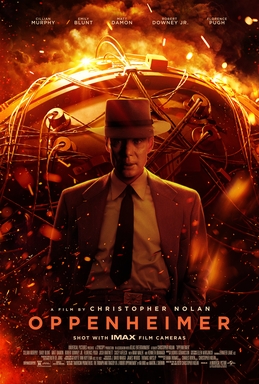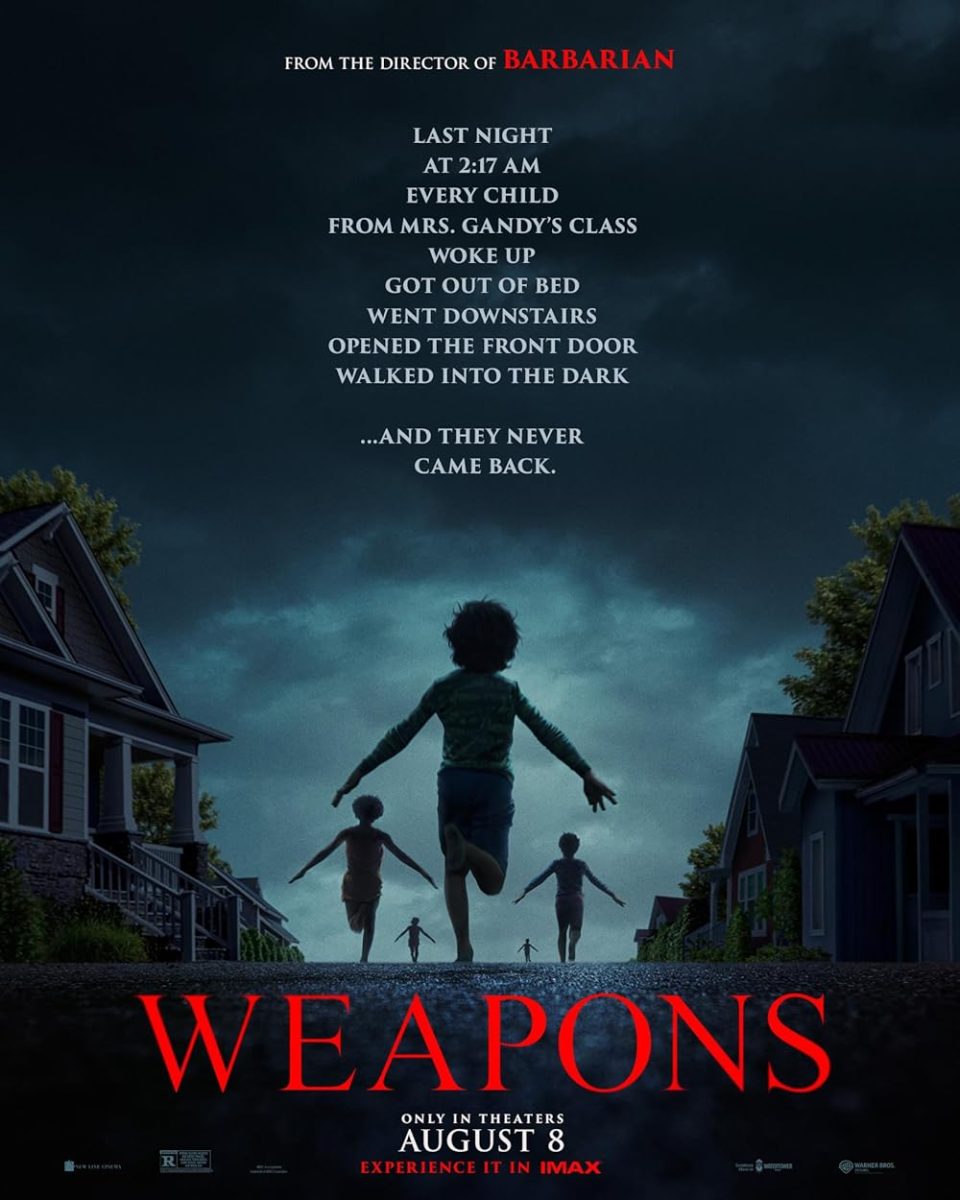
A grad student in physics has difficulty in the lab, and his teacher mocks him for it. But he’s exceptionally talented in the theoretical side of his major. The student is Robert Oppenheimer.
What stood out for the entirety of “Oppenheimer” was its beauty. The cinematography is excellent, which fits a movie about the spectacle of a bomb and all the chaos it brings with it.
Oppenheimer’s talent is discovered by Neils Bohr, who advises that he transfer elsewhere, to Gottenberg to study. After graduating, he heads back to the United States. Teaching in California, he meets his to-be wife, Katherine or “Kitty.” While teaching, Robert and his colleagues receive word that the Germans have made progress in nuclear fission, worrying them that the Germans are on their way to a bomb. In response to the news, U.S. Army General Leslie Groves recruits Robert to lead the Manhattan Project to develop our own bomb. Central to the project, Robert puts together a team of physicists, including Edward Teller and David Hill.
There were a few artsy choices thrown into the film’s presentation, ones that stood out among director Christopher Nolan’s previous work.
One of these scenes is during a speech Robert gives post-atomic bombing where, in an intense hallucination, he sees a bright flash among the crowd and the audience, for the most part, disintegrates, while others’ skin is peeling off.
Another similar choice is made in the midst of a deposition Robert is undergoing, when a bright light appears amid the small, dimly lit conference room and overtakes Robert’s vision.
Both were refreshing and were a part of the thematic strengths of “Oppenheimer.”
I enjoyed these moments. However, there were times before, in between and after these moments, where the same message did not need repeating but was repeated anyway.
The same could be said about the tumultuousness of Robert’s relationship with Kitty, where the two are always at odds with each other, whether it be her drinking problem as a result of postpartum depression, her discovery of his affair with a member of the communist party or her dislike of his passivity in the face of disrespect. Each deserved its own moment, but there were times when individual ideas did not need repeating but were repeated anyway.
As an example, we see Teller betray Robert in the deposition. Teller had a tiff with Robert during the project about differences in what direction they wanted the project to take. Again, in the end, the same idea shows up with Kitty evil-eyeing Teller in the midst of an award ceremony for Robert.
I didn’t feel bored by these moments, which could have been cut to bring down “Oppenheimer”‘s runtime of three hours. But, I knew I was getting basically the same message.
What also stood out were the performances, all of which were great. Chief among them was Cillian Murphy as Robert Oppenheimer, who was given a chore with scenes that included him simply, yet not so simply, thinking physical realities beyond the layman’s imagination. Less subtle scenes included a tear-jerking one of him discovering his mistress and lover, Jean, had suddenly taken her own life. I was brought to tears.
I did notice, and dislike, that much of the dialogue felt as though it wanted to be memorable or quotable. It was especially apparent when, in the middle of Robert’s affair with Jean, Jean grabs the Bhagavad Gita from a shelf beside them and has Robert read from it, “I am death; destroyer of worlds.” But such eye-rolling moments went hand-in-hand with the repetition of how grandiose Robert’s burden is as the man behind the bomb, including his conversation with Albert Einstein about how he feels like he has already destroyed the world. In that moment, I felt it was justified.
What took me, happily, by surprise was Robert Downey Jr.’s performance as Lewis Strauss, then head of the Atomic Energy Commission. Robert was also a member of this organization, and he and Strauss would butt heads, so much so that Strauss began to resent him. The conflict between Robert’s passivity and honesty versus Strauss’s aggression and manipulation became my favorite part of the movie.
Although I left the theater feeling like I had been on a car ride that lasted an hour too long, I enjoyed a large part of “Oppenheimer.” I think you’ll enjoy it too. It’s still playing in theaters.









Amber • Sep 5, 2023 at 7:51 pm
I agree, the cinematography of this movie was brilliant and could make anyone understand the tug between the guilt for having made such a powerful destructive thing and sense of achievement to possibly neutralize nuclear war.
I liked that there were many ideas that recurred during the movie and felt that they were a constant reminder to the viewer to think about and cause and effect of large and small issues between different relationships and situations in life. In one scene you could resonate with a decision for instance attending a meeting with known communists, then in another, now having seen the repercussions would have had a second thought on if it was worth it to even be seen with them. Scenes like this and other recurring themes I felt took the time to constantly pull at the moral conflict of actions in our own lives.
Great movie…and also agreed maybe a tad too long.